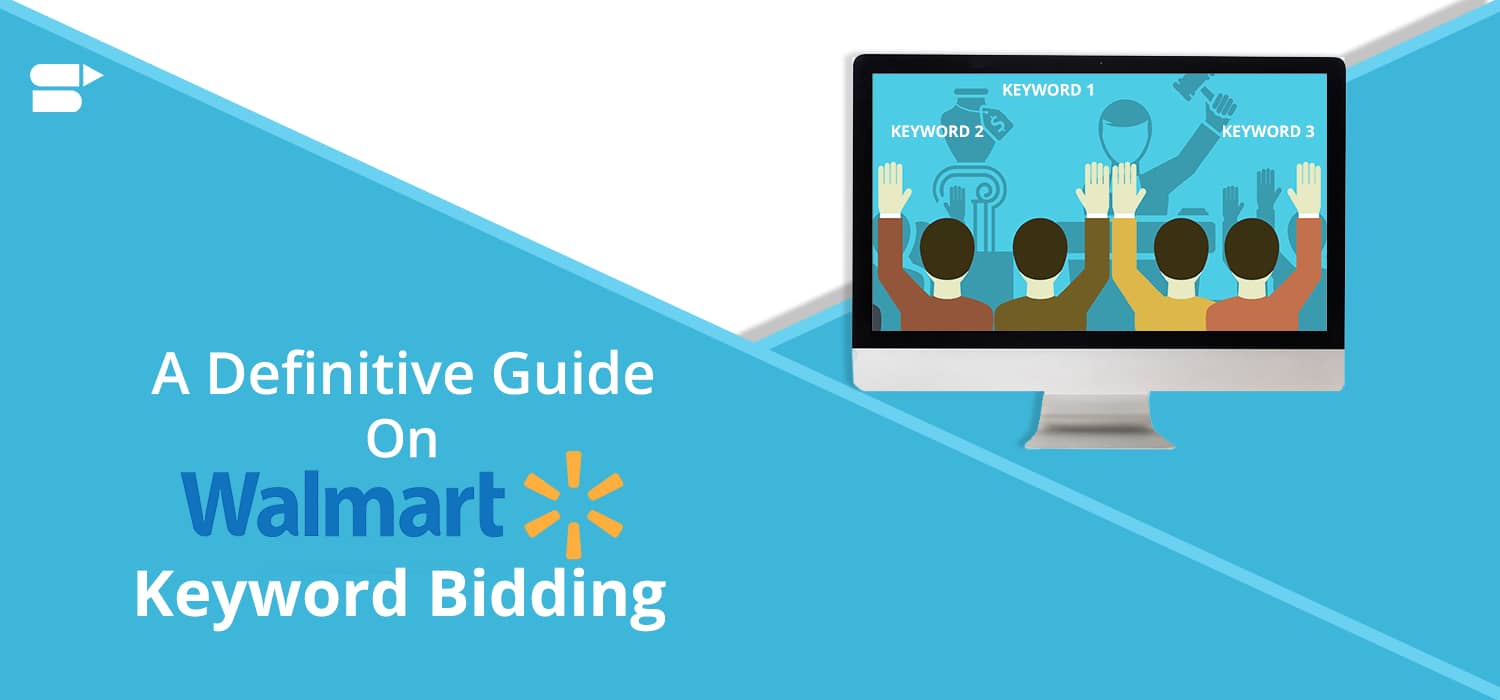Top 15 Ecommerce Marketing Tools You Should Use to Optimize Your Business Strategies

According to Statista, the expected ecommerce revenue for 2025 is US $4,791.00 bn. Ecommerce marketing tools, for business owners, are the quickest ways to harness this growth and 2X your marketing efforts to reach your ideal customers.
The best marketing tools for ecommerce go beyond customer acquisition. These tools in their unique ways add to its overall functioning. This further leads to customer retention adding to the ROI in the long haul.
In case you’re wondering which ecommerce marketing tools to use to optimize your strategy, we will cover 15 of the best ecommerce marketing tools in the current market. We will also specify which category they fall into, and in what way we found them useful in our journey.
How do ecommerce marketing tools improve online sales?
There are several ways in which ecommerce marketing tools can be used to skyrocket ecommerce sales:
Target marketing
Target marketing analyzes customer behavior to chalk out a pattern and segment them in terms of demographics, interests, screen time, etc. This makes sure the campaign created taps into these individual needs and increases conversion rates.
Personalized messages
Ecommerce marketing tools creating personalized messages drastically increases the response rate thus bringing success to the campaign. Personalized campaigns can also be leveraged to create loyalty bonuses for repeat customers.
Automated workflows
Campaigns can have several actions that can be repetitive (like, follow-up emails); this is where automation takes over. Workflows are designed in a way by ecommerce marketing tools that facilitates the timely execution of strategies which maximizes customer response.
For visibility and discoverability
Get an in-depth understanding of what people are looking for, integrate those keywords, and capitalize on it by maximizing its reach using ecommerce marketing tools.
Ad campaign management
Be it independent websites or Amazon, PPC management tools are absolutely essential to boost your product visibility. Like we, SellerApp, offer PPC Ad management services for Amazon to maximize the sales potential of your products.
Ecommerce marketing tools for email marketing
1. Mailchimp
When we first got started with Mailchimp, what caught our attention was the email triggers that could be used to boost engagement; such as welcome emails, reminder emails for abandoned cart recovery, etc.
A user may drop off for several reasons, but how cool is walking an extra mile to make sure no lead gets slipped off from your radar? An automated email reminder is just perfect to encourage the action without being too pushy.
Thanks to ecommerce marketing tools like Mailchimp, your email marketing campaigns are not only automated but segmented according to the audience, making them personalized and timely. This ensures the best possible opening rates.
Even the necessary manual actions that are required are now seamless as you can create emails with a simple drag-and-drop feature.
Mailchimp is programmed to fetch us detailed reports of the email campaign performance like clicks, conversions, dropout rates, and open rates with a detailed list of categorized recipients.
Ecommerce marketing tools like this further helps you build strategies and tap into what the potential audience may look for.
Considering Mailchimp’s pricing, we recommend this email marketing tool to small and medium-sized businesses. Here’s a price comparison of different plans available at Mailchimp:

2. Klaviyo
Klaviyo is another email marketing tool that’s super similar to Mailchimp. However, Klaviyo is on another level when it comes to automation. Klaviyo automates marketing campaigns but goes beyond simple email marketing automation. It’s helped us design and automate SMS-specific marketing campaigns and even dabble with push notifications as well.
In addition to advanced segmentation features, ecommerce marketing tools such as Klaviyo is capable of running A/B testing on minor details such as subject lines by correlating it with email campaign success metrics to segment the audience better. The good part is you can directly link your existing Canva templates to increase consistency in brand aesthetics.
We suggest this to small and mid-sized businesses for its affordability and versatility.
Here’s a price comparison of different plans available at Klaviyo:

SEO Tools and Site Optimization Tools
3. Ahrefs
Ahrefs is a breakthrough point in every marketer’s SEO journey. There is a reason why every SEO analyst/content marketer is a fan of this tool. It transformed the way we do keyword research now. With one click you get access to a keyword’s search volume, keyword difficulty, and even how many backlinks you’ll need to get your page to rank.
The Site Explorer feature helps you spy on competitors’ backlink profiles and traffic sources like a cakewalk. The best aspect of the platform is its user-friendly user interface which is super intuitive.
It is one of the exceptional ecommerce marketing tools that goes one step further in giving you complete clarity of your account health in terms of SEO issues. Be it Shopify or any similar platform, it simplifies keyword research and it shows several features for each keyword option that you can consider suiting your strategy.
Here’s a price comparison of different plans available at Ahrefs. And yes, we recommend this to everyone!

4. Google Search Console
Google Search Console is one of the best free ecommerce marketing tools that we use on a day-to-day basis to look into a variety of metrics (such as average CTR, impressions, etc.) of our website that give a clear picture of our website’s visibility. It helps you dig into further details to improve traffic.
Remember, to first get your platform verified to start using this tool.
Most importantly, Google Search Console also has a URL inspection tool that tells us about the indexing status of our URLs and troubleshoots for any indexing-related issues. It shows you indexing issues to provide clarity. The tool also provides page indexing reports that give deeper insights into why a page may fail to get indexed.
It gives you a list of keywords that drive traffic to your website and you can make adjustments to your strategy to improve organic traffic.
Google Search Console is truly one of the best ecommerce marketing tools for providing backling insights on what businesses are offering link juice to your site. This further brings you opportunities to collaborate for mutual benefits.

Customer Relationship Management (CRM)
5. HubSpot
When you opt for a CRM system that supports you in keeping customer data organized, you can channel your entire focus into strategy. Such was our experience with HubSpot. For businesses that rely on inbound marketing, Hubspot manages the data for inbound leads. The easy and intuitive workflow optimization seamlessly encourages its usage.
It integrates marketing, sales, CMS, and operation hubs so that multiple teams can find the same database under one platform. The Custom Objects option lets you customize your data sections to help you compartmentalize your CRM data that aligns with your business requirements. You don’t even need coding knowledge to execute it.
It is an excellent integrated tool that not only creates seamless blog posts, landing pages, email communication, etc, with AI assistance, but it allows personalization options for creating email responses and targeted workflows.
And when it comes to communication, personalized messages bring success to the strategy with a slight edge.
We heard marketers raving about the email marketing features of HubSpot. We realized what we were missing out upon trying their elaborate features. It lets you design, personalize, and track the performance metrics of these emails and simplifies the process with a seamless user journey.
Emails are just one part of it. We could manage our multi-channel promotional campaign that too while being consistent in our messaging across these channels. We could further schedule social media posts according to our content calendar and track engagement on each of these posts.
But in our opinion, Hubspot wins the ultimate test for their agile automated workflows and stands out as one of the most intuitive ecommerce marketing tools. It ensures no lead generated goes untapped or unnoticed which directly adds to the ROI. The AI-driven custom objects automate workflow depending on your specific criteria. So, when a customer’s subscription is about to expire, the workflow will automatically trigger a reminder mail to encourage him to renew. Similarly, convert a lead into a loyalty campaign member when their lifetime value reaches a certain threshold.
We suggest you check out HubSpot’s all-in-one ecommerce marketing tool for free as a part of a 14-day free trial and decide for yourself.
Here’s a price comparison of different plans available at Hubspot

6. Salesforce CRM
Although we found one of the best ecommerce marketing tools, we had to try out a few to arrive at which one was the best.
Salesforce CRM does a commendable job for me in helping me enhance customer engagement, streamline operations, and positively impact the ROI. Due to its robust sales CRM, go for Salesforce CRM if your business has a well-defined sales process.
It holds an edge over other competitors in the market because of the elaborate database, which also results in a well-defined analytics section. The robust database and analytics section results in getting qualified leads.
Salesforce CRM considers purchase history and patterns of interaction across various touchpoints to consolidate that into an all-inclusive view. What stood out to us is its centralized data storage which helps track data-driven strategies in marketing campaigns and monitor them in real-time.
The AI-driven insights are a boon to micro-manage these campaigns for even better results. We can call it a correct choice for ambitious marketers. Like Hubspot, Salesforce automates marketing campaigns for effective lead conversion but comes at a way higher price. So, even if it is undoubtedly one of the best ecommerce marketing tools, we don’t suggest it for small to mid-size companies.
Here’s a price comparison of different plans available at Salesforce Marketing



7. Zoho CRM
If you’re searching for a cost-effective ecommerce marketing tool to manage a customer database, look no further.
We’re sure thousands of other marketers will have the same opinion. Zoho CRM simplifies your omnichannel communication, via email, social media channels, and live chat so that availability never becomes a blocker.
Zoho allowed us to segment our customers and thus design our communication strategy better; the better we resonate with their needs, the chances are the customers will bond better. But we’ve seen this in our former contenders as well.
Here you can find some really well-designed email templates that could be easily personalized, and tracked via open rates and click-through rates.
Zoho CRM is one of the best ecommerce marketing tools that streamline lead generation like no other— especially for saas businesses. Now we do not need to write codes to derive information straight from the web-to-lead forms that we feature on our landing pages; the even better part?
We could design the web forms through its drag-and-drop feature. They have a survey form feature for your survey campaign that is similar to the forms.
Once your customers take part in one, you can easily turn their interest into a possible lead.
You can easily visualize your ad spending and optimize ad campaigns considering which campaign won you the most leads, all so seamlessly because of Google Ads integration in Zoho CRM.
Try their 15-day free trial and see if it suits your requirements.
Here’s a price comparison of different plans available at Zoho

Social Media Management Tools
8. Buffer
The concept of managing several social media accounts from one platform is what’s particularly appealing to most businesses. However, really good tools are few and far between.
We could bulk upload posts in advance to schedule the post after carefully assessing the best hours of the day for engagement. The tracking system can fetch insights from the engagement from the post which made it easy for us to understand what posts lead to the most responses.
Buffer allows the chance to easily integrate Shopify. So whenever you promote a product on social media handles, you get to link products from your Shopify store directly to the posts. It increases traffic to your product page and thus increases the chances of conversion.
Here’s a price comparison of different plans available at Buffer.

9. Sprout Social
Sprout Social is one of the ecommerce marketing tools with a centralized management system for social media content. It also comes with smart scheduling features to maximize the potential of visibility and engagement.
We found it very similar to Buffer in terms of smart scheduling features and performance analytics. The unified inbox of Sprout Social made it easy for us to interact and solve customer queries together as a team.
What sets it apart is the listening tools it offers. We can understand and gauge what our audience thinks about our brand every time they mention our name. Sprout Social also has easy influencer partnership management features that you can check out if influencer marketing is a part of your strategy.
Here’s a price comparison of different plans available at Sprout Social.

Content Marketing Tools
10. BuzzSumo
BuzzSumo is one of the ecommerce marketing tools dedicated for content marketing. It comes with a backend intelligence to discover trending content types. So just by entering related keywords, we can get an idea of what content type is most resonating with your target audience. This keeps the content fresh and appeals to the contemporary audience.
It doesn’t stop there.
BuzzSumo suggests that you the influencers compatible with your niche, listing the engagement metrics, follower counts, and so on. You can easily pick and choose who to contact to bring attention to your website.
What we like best about it is the clarity it provides via shares and backlinks to understand the audience better and strategize content according to their needs.
It comes with a listening tool that sends you alerts when the audience mentions certain keywords words related to your brand. You can thus proactively attend to them in real-time, show that you’re engaged, and create a better customer experience for them. Ecommerce marketing tools ubdoubtedly sets you up for success.
Here’s a price comparison of different plans available at BuzzSumo.

11. ChatGPT
Chat GPT’s AI model is also one of the best free ecommerce marketing tools if used correctly. The human-like interaction not only keeps it dynamic but also helps generate content ideas, trending topics, and marketing copies with just one specific prompt.
For us, it has made brainstorming easier, and almost mimicking sitting with a stakeholder who understands what we’re specifying— be it adapting to the tonality or matching the existing content pattern. Be it anything, just explain it the correct way and it will pick up on it like someone with a super high IQ! The reason we love it the most is because it can almost discreetly rectify your mistakes as if it was never there!

Additional read: Boost Ecommerce Sales with ChatGPT Using 20+ Dynamic Prompts
Ecommerce Platforms
12. Shopify
The reason why we include Shopify is because we’ve seen it having a massive business impact to let some (now) big brands jump-start their journey. Caseify, the smartphone cover brand, Drunk Elephant, the skincare brand, Gymshark, the fitness wear brand— are such examples.
Shopify is one of the most popular ecommerce marketing tools that helps users build a fully functional website, streamlining order management and connecting it with the inventory.
Coming to the marketing tool performance side of it, Shopify comes with an in-built SEO integration feature. This enables you to sell directly on social media platforms such as TikTok stores where people can come across your content and the Shopify link attached, they can be led directly to the store.
You get plenty of tools for executing successful email marketing strategies as well. Shopify dashboard shows you real-time data insights, purchase patterns of the target audience, and overall performance.

Read more: How To Sell On Shopify: A Comprehensive Guide
Payment and Shipping Tools
13. Partial.ly
Gathering upfront capital to afford third-party tools and services to optimize your business can be a major hurdle. To help you overcome this, Partial.ly makes the payment system flexible to make it easier on their pockets while opting for these necessary solutions.
For the third-party solution providers, this flexibility increases their potential for customer acquisition, while for the growing businesses, it makes the high-ticket solutions more affordable making it a win-win for both parties.
Partial.ly offers customized payment plans according to our (provider’s) flexibility (like setting down payments, frequency, currency options, etc.). These payments are enabled automatically according to settled terms and the automated billing on fixed schedules promotes consistent payment without human intervention.
What we particularly found useful in Partial.ly is that it does not mandate the credit check procedure. This increases their conversion rates as people mostly try to avoid lengthy verification processes.
The charges are as simple as

Interestingly enough, Partial.ly enables you to integrate tools like Mailchimp, Buffer, etc, (that we mentioned earlier) to create marketing campaigns and reach your potential customers. A marketing tool helping you get access to other ecommerce marketing tools. Fascinating, right?
14. Stripe
Among the ecommerce marketing tools for payments, Stripe deserves special mention. It enables online payments in a secure environment. It accepts countless recognized payment methods such as VISA, Mastercard, PayPal, ETS, Apple Pay, etc. whichever is globally acknowledged.
The reason we recommend Stripe is that it uses best-in-the-industry tools like 3D Secure (3DS) and CVC checks for card verification and also supports Address Verification Service (AVS) so that no card payment fraud can take place.
Stripe has access to global payment data that conducts cross-reference payment verification in real-time. If your service requires monthly recurrent billing, it can also automate the process without your team’s intervention.
What we particularly like about Stripe (unlike other generic ecommerce marketing tools) is its attention to detail via customization options to ensure the checkout process stays cohesive with the brand’s aesthetics generating a better customer experience. If you’re looking for an ecommerce payment solution, Stripe is a reliable yet scalable option.

Amazon PPC tool
15. SellerApp
To optimize your Amazon ad campaigns and prevent major waste in ad spending you need a solution such as SellerApp’s PPC management tool. You can use AI automation or use advanced rule-based strategy where you get to have a greater extent of control over your PPC ad optimization.
With SellerApp’s Advanced rule-based automation, you can set hundreds of different rules with unique conditions and exclusions. This can help you optimize your campaigns at an incredibly granular level, setting you apart from the rest of the players in your category.
Once you link your Seller Center and advertising account with SellerApp you get an in-depth visualized solution for all your ad performance, sales reports, and more.
Additionally, SellerApp offers reports such as SUPA (Strategic Utilization & Performance Analysis) and account performance reports that provide detailed insights into hyperrelevant keywords and important metrics such as conversion rates. In addition to that, for undertanding product level information and gauging location specific demand trends, we recommend using SellerApp ecommerce data API to customize reports. This information when leveraged correctly can inform your decision-making and drastically enhance your ad strategies.
Detect high-performing keywords, use them in manual campaigns, play around with match types, figure out bidding strategies, and implement them.
…and there’s so much more. Learn about all our services here.
Ultimately, using SellerApp can ensure that you spend less time running ads and manually optimizing them, giving you that necessary buffer to develop your products and audit your overall business performance.
The pricing for the paid tools looks are:

What are the best free ecommerce marketing tools available?
ChatGPT is by far among the most popular ecommerce marketing tools to exist. It is not only for the fact that you can use it for free but the conversational AI-based model makes the process fluid, as if you’re simply brainstorming with a specialist.
Otherwise, we can suggest Google Search Console, and Mailchimp to make your marketing journey easier on your brain and your pockets as well. If you’re an Amazon seller, the best free tool to use for bettering your organic ranking would be the tools offered by SellerApp dashboard.
Final Thoughts
Ecommerce success is not a tough nut to crack when you have access to these (not 1 but 15) ecommerce marketing tools to crack it open.
The ecommerce marketing tools we have described are tried and tested best practices that your competitors might be using to achieve their goals. So go ahead and try their free versions or their limited-time free trials (which they mostly have) and be the better judge. After all, the power to take your business to new levels is in your hands.
Additional Readings:
15 Essential Amazon Analytics Tools for Business Growth
9 Best Amazon Seller Software Tools to Become a Category Leader
Top 8 Amazon Inventory Management Tools for Your eCommerce Business
Multi Brand Strategy To Help You Systematically Expand Your Brand Reach










Richel Lerodarte
March 31, 2025so many powerful tools in one place—thanks for saving me hours of research!
Prince Brantley
April 1, 2025Super helpful roundup! These tools are exactly what I needed to level up my marketing game.
Keira Hotard
April 3, 2025You brought up some excellent points I hadn’t considered. Appreciate the new perspective